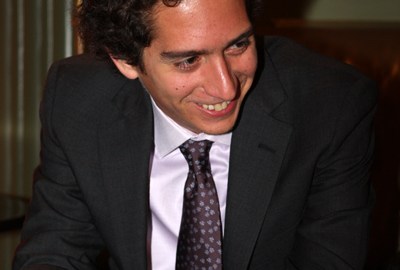Literary Pomp And Circumstance At The New Yorker

The New Yorker was my introduction to contemporary literary fiction years ago when I was a pre-teenager looking for something outside of the confines of my small town public library. This was back when Don Barthelme and Ann Beattie and Ray Carver were the literary stars of the moment. There was something about the way they could intensify the details of the ordinariness of living into a compelling drama, even though most of the time the characters didn’t do much of anything, in a way that made you look a little harder into the meaning of your own life.
Years later, when I was a young aspiring writer, I collected the requisite rejection slips from the magazine’s fiction editors, back when writers mailed submissions to their slush pile. It wasn’t long after I quit submitting stories to them regularly that the first “20 under 40” fiction issue celebrating 20 of the lit world’s most promising writers of serious fiction came out. It was exhilarating, because there was so much good work in one place, and also a little depressing, since it put an exclamation point on a growing sense of inadequacy that a lot of unpublished and underpublished writers faced. I had to ask myself “what do they have that I don’t?” Whether it was talent, dedication, connections, or just plain luck, it was clear that they had more of it than I did.
Even after I gave up the idea that I might be one of their “20 Under 40” literary up and comers, I continued to follow the careers of some of their original 20. Now they’ve done it again, ten years later, with a brand new “20 Under 40” fiction issue. Maybe it’s because I’m over forty now, or maybe it’s because I don’t suffer from as much self doubt about my work as I used to, but I have had no qualms at all with this issue. Maybe its because I don’t l know that many writers under forty whom I think deserves to be on this list, other than my man Ron Currie, Jr., a member of one of my old writing groups who is the author of God Is Dead and Everything Is Everything, and because my current favorite, Mr. Colson Whitehead, author of Sag Harbor and the seminal The Intuitionist, was just a little too old to make the cut.
If I had to pick one writer from their current list, I wouldn’t hesitate—Daniel Alarcon is hands down one of the best writers in the world right now, with a sense of story that is mesmersizing. Born in Peru, raised in Alabama, with a degree from the famed Iowa Writers Workshop, the Oakland, California based writer has an unerring sense of character, with an ability to present in deft, sure sentences those real life nuances that make great fiction ring true. His story “City of Clowns”, a selection from his short story collection War By Candlelight, was published in the New Yorker back in 2003. In contrast to the spare, often stilted language of post modern fiction, Alarcon’s story reads like a novella.
I don’t know if I could be an editor. Especially a fiction editor. I would imagine that you would have to read a lot of stuff you may not like while trying simultaneously to make sure that your own ingrained prejudices have a minimal impact on your final selections. Nevertheless, the staff at the New Yorker have tried to put together a group of writers they feel will have a real impact on the literary canon in years to come. And while I don’t agree with all of their picks, I think it is important for them to at least try, in this era of short attention spans and shorter communication mediums, to impart some sense of majesty to the realm of serious fiction.




